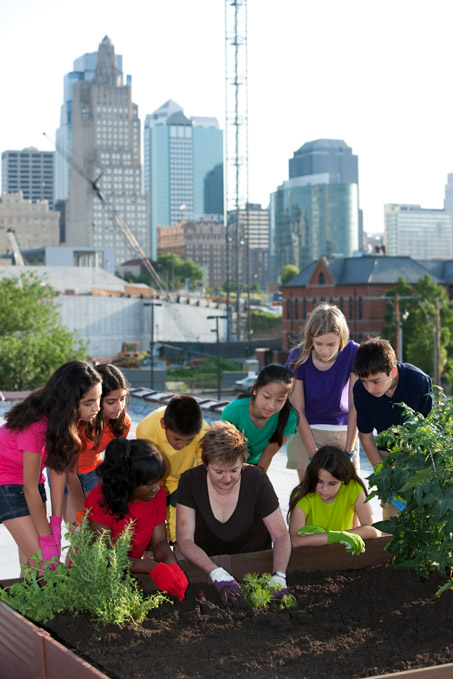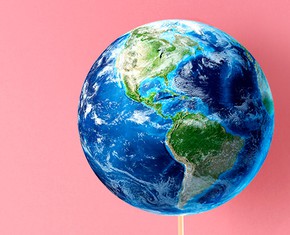The views expressed in our content reflect individual perspectives and do not represent the authoritative views of the Baha'i Faith.
As a child, I had the great blessing of growing up in a mostly rural farm community in the Pacific Northwest. My family lived pretty close to the land. With five kids and two parents and not a college degree anywhere in sight, we often struggled. Those conditions meant I hunted and fished from a young age, but never for sport. Instead, we needed to eat everything we caught or shot or grew in the ground.
I didn’t realize it until I reached adulthood, but this intimate connection to the Earth itself, to the soil and the plants and the animals, turned into a wonderful bounty.
It made me realize that everyone owes their very existence to the natural world. It gave me the real knowledge that I am part of the web of life, connected and interwoven, a child of God and Mother Earth, as well. Every time I dug into the ground to find bait to catch fish, I found life everywhere, and came to appreciate and understand that the Earth itself, the dirt and the rocks and the rivers, are alive in a very real way.
When I grew up into my early adulthood I wanted other, more urbanized children to have that same experience, so I started volunteering with a group called Outward Bound, whose mission involved introducing kids to nature. One day I took a group of kids who had never left the city to a farm in the country. While we stood in a field, one of the kids looked down and asked “What’s this growing here?”
“Carrots,” I said.
“No way,” several of the kids said, looking at the leafy greens we stood next to. “These aren’t carrots!”
I reached down and pulled one out of the ground.
“Ew!” one boy said, thoroughly grossed out. “You mean they grow in dirt?!”
 So many of us now have what the psychologists call nature deficit disorder—we live surrounded by concrete and asphalt and glass and steel, our homes and schools and workplaces and cars walling us off and disconnecting us from the natural world. We’ve forgotten, or never known, our profound connection to the Earth and to all other living things. Personally, I think that distance from nature and the created world have made many of us forget and forego the Creator, too. Tribal, agrarian and indigenous peoples from just about every era in human history were never atheists, because they saw the work of the Great Spirit, understood themselves as part of the creation, and lived in awe of that majesty and beauty and power.
So many of us now have what the psychologists call nature deficit disorder—we live surrounded by concrete and asphalt and glass and steel, our homes and schools and workplaces and cars walling us off and disconnecting us from the natural world. We’ve forgotten, or never known, our profound connection to the Earth and to all other living things. Personally, I think that distance from nature and the created world have made many of us forget and forego the Creator, too. Tribal, agrarian and indigenous peoples from just about every era in human history were never atheists, because they saw the work of the Great Spirit, understood themselves as part of the creation, and lived in awe of that majesty and beauty and power.
Instead, most of today’s so-called “advanced civilizations” have focused entirely on the material riches they can extract from the Earth, as if it possessed infinite resources. Along with the prevailing economic theories of constant, unlimited growth, those attitudes have brought about the deeply mistaken belief that our globe’s goodness exists only to fuel our acquisitive desire for more material wealth and power, and have left many people oblivious of the severe long-term consequences:
The fallacies in theories based on the belief that there is no limit to nature’s capacity to fulfill any demand made on it by human beings have now been coldly exposed. A culture which attaches absolute value to expansion, to acquisition, and to the satisfaction of people’s wants is being compelled to recognize that such goals are not, by themselves, realistic guides to policy. Inadequate, too, are approaches to economic issues whose decision-making tools cannot deal with the fact that most of the major challenges are global rather than particular in scope. – The Realization of Economic, Social and Cultural Rights, statement from The Baha’i International Community, 16 July 1995.
Despite our technology and our scientific progress and our gleaming cities, our industrialized human activities have combined with a barbaric, combative, smoke-belching, profit-before-people ethic which now threatens—no, promises—to make our one and only planet increasingly unlivable:
…when thou lookest at the orderly pattern of kingdoms, cities and villages, with the attractiveness of their adornments, the freshness of their natural resources, the refinement of their appliances, the ease of their means of travel, the extent of knowledge available about the world of nature, the great inventions, the colossal enterprises, the noble discoveries and scientific researches, thou wouldst conclude that civilization conduceth to the happiness and the progress of the human world. Yet shouldst thou turn thine eye to the discovery of destructive and infernal machines, to the development of forces of demolition and the invention of fiery implements, which uproot the tree of life, it would become evident and manifest unto thee that civilization is conjoined with barbarism. Progress and barbarism go hand in hand, unless material civilization be confirmed by Divine Guidance, by the revelations of the All-Merciful and by godly virtues, and be reinforced by spiritual conduct, by the ideals of the Kingdom and by the outpourings of the Realm of Might. – Abdu’l-Baha, Selections from the Writings of Abdu’l-Baha, p. 284.
These “forces of demolition” and the “fiery implements” that Abdu’l-Baha warned us about more than a hundred years ago have definitely come to pass. The constant burning of that carbon-spewing fire all over the world has led us to literally “uproot the tree of life,” as we wantonly and rapidly destroy more forests, which provide the world with the oxygen we humans need to continue breathing. If we continue down that treacherous path, we will commit slow suicide as a species.
The Baha’i teachings say that only these remedies—“spiritual conduct, …the ideals of the Kingdom and… the outpourings of the Realm of Might” can possibly heal such an ailing planet.
















Comments
Sign in or create an account
Continue with Googleor